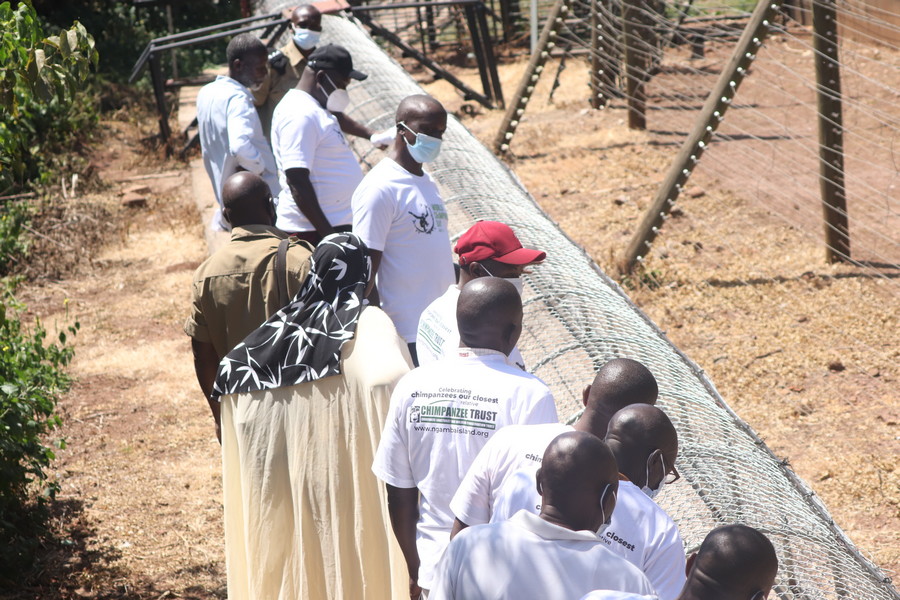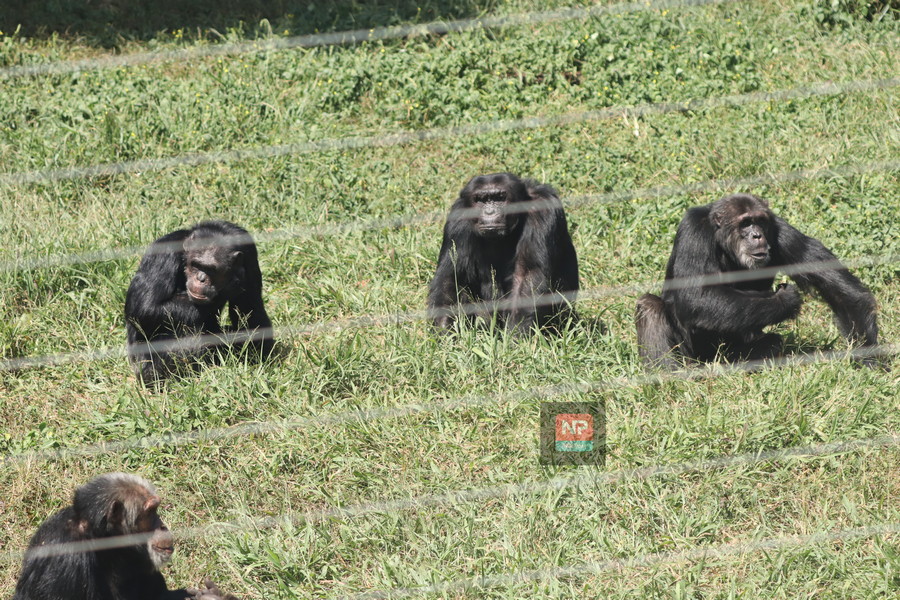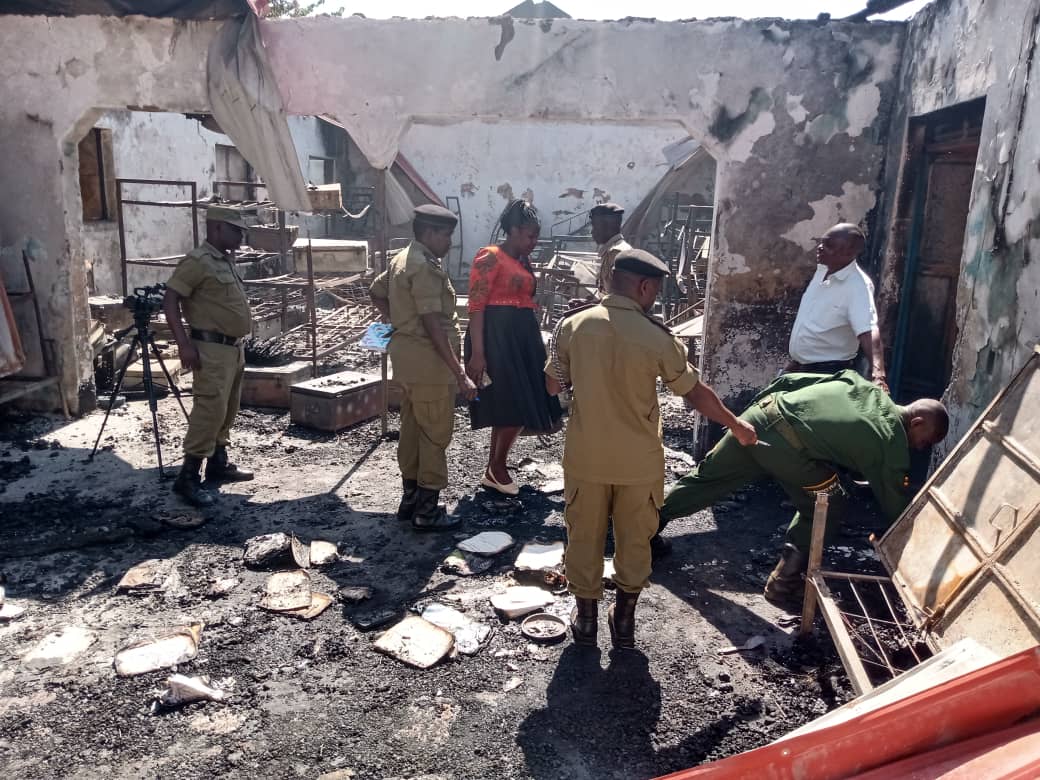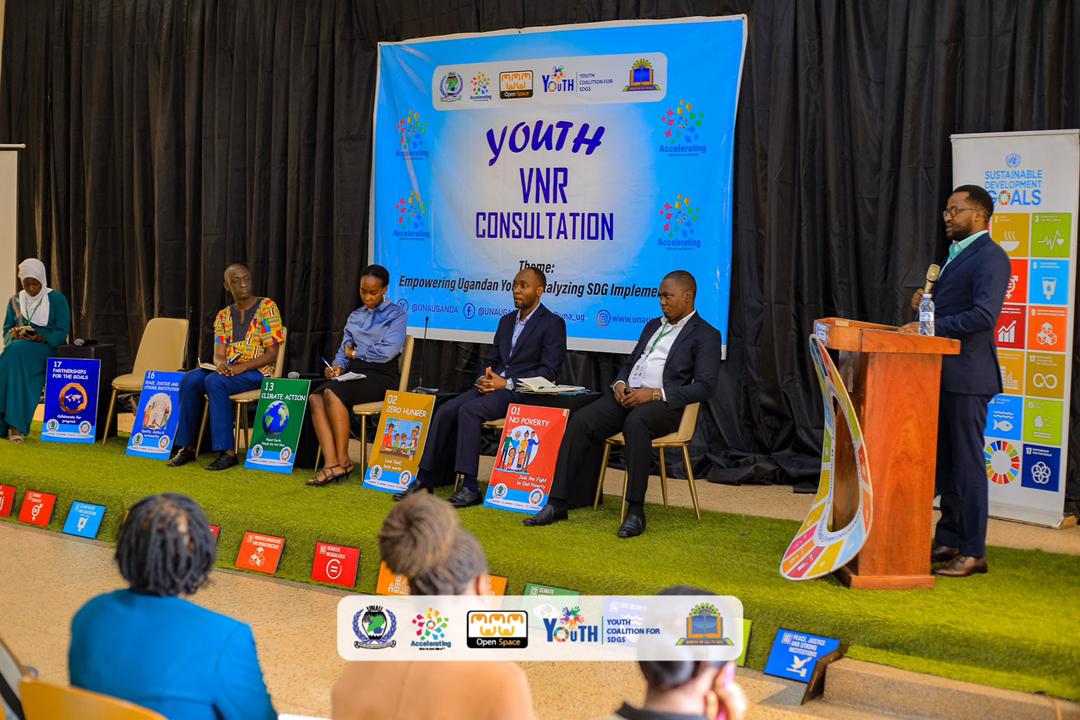Ngamba sanctuary beats two years of catastrophe to continue providing safe haven for chimps
Ngamba Island Sanctuary has for the first time in two years joined the rest of the world to publically celebrate the World Chimpanzee day.
In the past two years, the day was not celebrated following the outbreak of the deadly Covid pandemic but also the rising water levels in Lake Victoria had a big toll on the operations of the island sanctuary as water ravaged a big chunk of the property.
Keep Reading
On Thursday, the Chimpanzee Sanctuary and Wildlife Conservation Trust (CSWCT)which is in charge of the sanctuary hosted communities, schools and other stakeholders at Ngamba but also a guided tour around the facility in a bid to show them the improved infrastructure of the sanctuary to enhance the welfare of the chimpanzees constructed in the past two years.
 Members of the neighbouring community being shown around newly constructed facilities at Ngamba.
Members of the neighbouring community being shown around newly constructed facilities at Ngamba.
Speaking during the function, CSWCT Executive Director D. Joshua Rukundo applauded stakeholders including neighbouring communities from Koome sub-county and donors for coming to the aid of the sanctuary in the past two years, especially during the times of the lockdown and the rising water levels.
“For me this is an opportune time to recognise these people for the support they provided. You only know your friends when you are in trouble and these are our real friends. The people of Koome were there for us. They brought us food for chimps and commiserated with us,”Dr.Rukundo said.
At the same function, a children’s storybook named “It is dangerous being a chimpanzee: I am Sunday” was launched.
The book depicts the story of a chimpanzee stolen from the Uganda Zoo(currently known as UWEC) in 1991 and taken to a circus in Europe ,specifically in Moscow , Russia from where it was later rescued and returned to Uganda and handed to Ngamba.
Ngamba also used the day to unveil the youngest chimpanzee born during the pandemic and has since been named Themba.
Threats to chimps still exit
The Ngamba sanctuary boss however noted that despite several efforts by stakeholders in ensuring protection of chimpanzees, threats continue to exist.
“In 2006 we estimated to be having 5000 chimps but the recent census done by Uganda Wild Life Authority (UWA) in partnership with Wildlife Conservation Society (WCS) has revealed that the number has dropped by 30 per cent coming to 3500 chimps," Dr. Rukundo said.
 Chimpanzees at Ngamba.
Chimpanzees at Ngamba.
He said that human-wildlife conflict has been the biggest contributor to the decline in the population of chimpanzees, mentioning habitant destruction, diseases(from humans to chimps), poaching and need to keep the animals as pets.
According to Dr.Rukundo, unless the public is sensitised about these animals as part of the environment that needs to be protected, there will always be problems.
“By nature humans are very selfish and most of it is brought about by ignorance. People must get to learn more about our environment and why we need to plant more trees to get more water to enable us grow food.”
“Therefore, we need to learn lessons from other species(which are now extinct) and protect the chimps since they are unique. It is our responsibility to take care of these animals by making noise and protecting these endangered species.”
The Koome sub county chairperson, Lawrence Kiyingi could not agree more with Dr.Rukundo, arguing that had it not been for the chimpanzees and the sanctuary in general, they would not have achieved the development they have now.
“As a community, we have got a health centre II, teachers quarters at Koome Church of Uganda Primary School, water tank and other facilities courtesy of these animals. If we had more sanctuaries, we would be too far,”Kiyingi said.

















